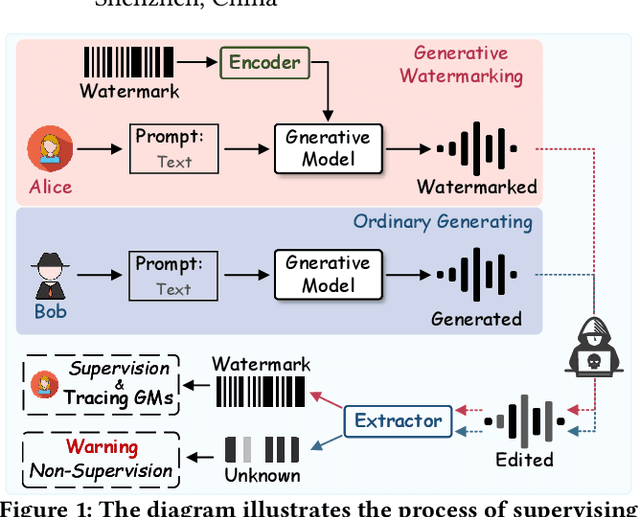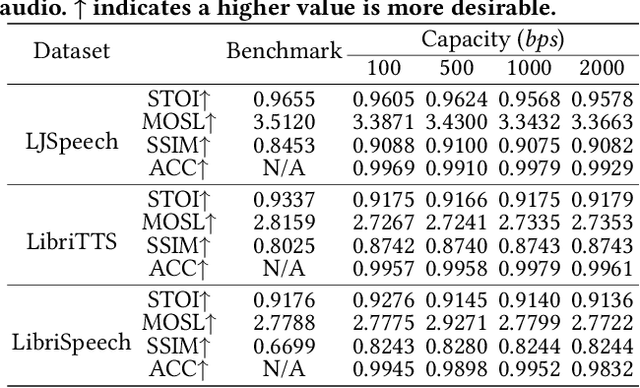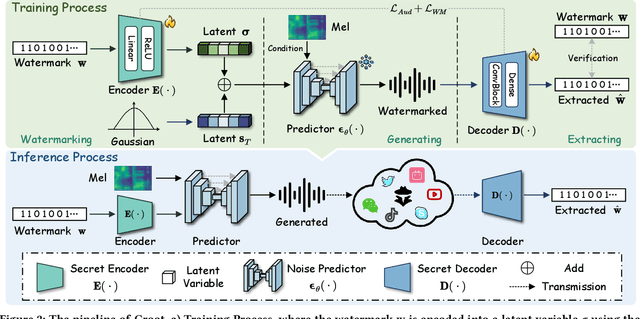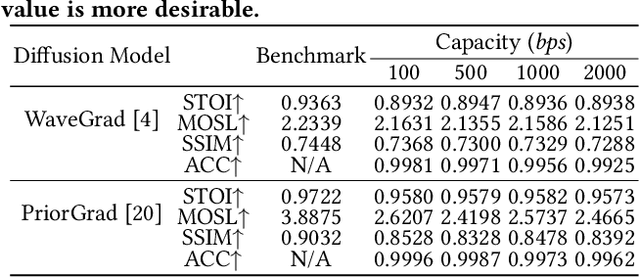GROOT: Generating Robust Watermark for Diffusion-Model-Based Audio Synthesis
Paper and Code
Jul 15, 2024



Amid the burgeoning development of generative models like diffusion models, the task of differentiating synthesized audio from its natural counterpart grows more daunting. Deepfake detection offers a viable solution to combat this challenge. Yet, this defensive measure unintentionally fuels the continued refinement of generative models. Watermarking emerges as a proactive and sustainable tactic, preemptively regulating the creation and dissemination of synthesized content. Thus, this paper, as a pioneer, proposes the generative robust audio watermarking method (Groot), presenting a paradigm for proactively supervising the synthesized audio and its source diffusion models. In this paradigm, the processes of watermark generation and audio synthesis occur simultaneously, facilitated by parameter-fixed diffusion models equipped with a dedicated encoder. The watermark embedded within the audio can subsequently be retrieved by a lightweight decoder. The experimental results highlight Groot's outstanding performance, particularly in terms of robustness, surpassing that of the leading state-of-the-art methods. Beyond its impressive resilience against individual post-processing attacks, Groot exhibits exceptional robustness when facing compound attacks, maintaining an average watermark extraction accuracy of around 95%.
 Add to Chrome
Add to Chrome Add to Firefox
Add to Firefox Add to Edge
Add to Edge